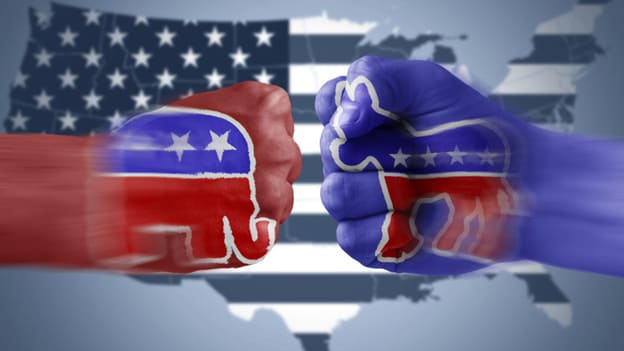Politics hit productivity in US workplaces: Survey

47 percent of workers in the US are distracted by the upcoming presidential election to the point that they can’t get their work done, according to the results of a Gartner survey released on Tuesday. This is hardly surprising, given the extremely divided political climate in the country—for example, one recent report by the Pew Research Center found that the news sources trusted by supporters of the Democrat and Republican parties were almost complete polar opposites—but it spells bad news for workplaces.
According to the survey, 78 percent of employees discuss politics at work: while many workplaces have guidelines about doing so, it cannot be legally restricted because political discussion is considered protected speech in the US. The result, however, is that the political divide is also dividing workplaces. 36 percent of survey respondents actually said that they actively avoid talking to or working with a co-worker because of the other person’s political views; 31 percent of those who engage in political discussions said they find the conversations stressful, frustrating, or both.
The emotional burden of such discussions is taking a toll on productivity. To begin with, people are taking more time out of work to read about the elections: 33 percent of survey respondents said that they are spending more time getting political news while at work. On top of this, employees with differing political views are becoming more hostile to each other. 29 percent of respondents reported seeing co-workers treated unfairly because of their political beliefs.
Brian Kropp, Gartner’s head of research on HR, said that HR needs to step in to deal with these problems. “To minimize the negative impacts of politics on the workplace, HR leaders must ensure that employee emotions and behaviors associated with the current political environment don’t distract and disengage the workforce or create a hostile work environment,” he suggested.
This means firstly emphasizing the organization’s commitment to diversity and inclusion, and underscoring that diversity also means diversity of political views; and secondly training and equipping managers to identify, moderate, and defuse political discussions before they spiral out of hand, not to mention providing support for employees who are negatively affected.
The US presidential elections are scheduled for November, meaning that workplaces have a long grace period to sort this problem out before it grows any further.
Image source: CIO















